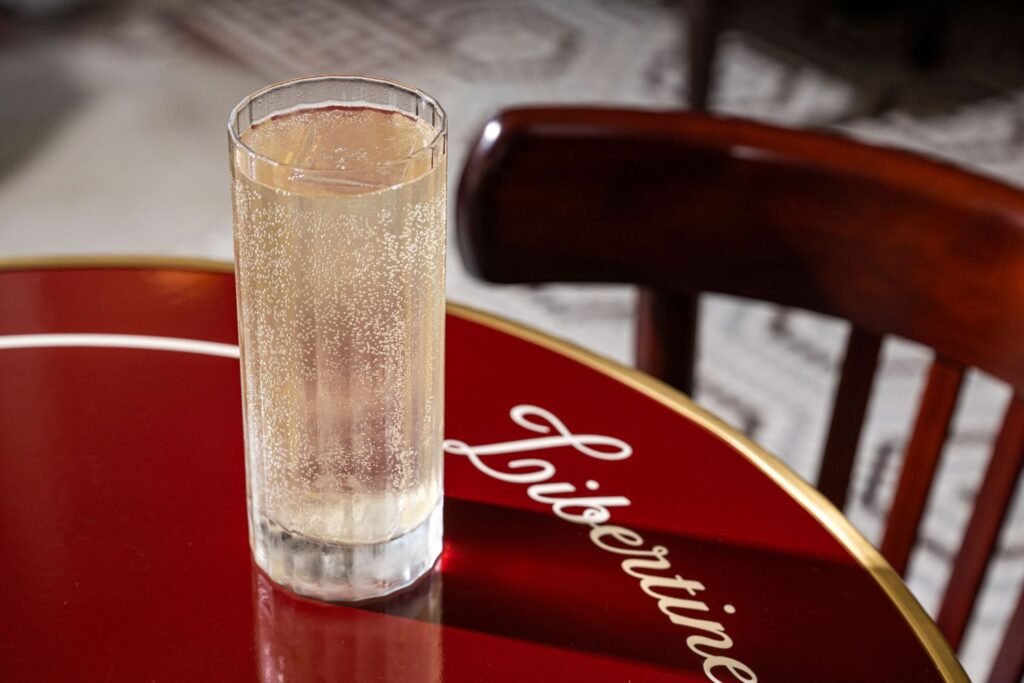The trend of minimalism in cocktails is gaining traction among bartenders who are looking to create drinks that stand on their own without the need for extravagant garnishes. Not only does this approach focus on the essence of the drink itself, but it also addresses the issue of food waste that often comes with elaborate garnishes.
One of the main reasons for the shift towards minimalism is the environmental impact of cocktail garnishes. According to Calum Fraser, ambassador for zero-waste spirits brand Discarded Spirits Co., one kilogram of waste from lemon garnishes can create as much carbon emissions as a 20-minute car journey. This staggering statistic has prompted bartenders to rethink their garnishing practices and consider more sustainable alternatives.
There are two main approaches to rethinking cocktail garnishes: the abolition of garnishes altogether and the creation of closed-loop cocktails where waste is repurposed into new ingredients. Bartenders like Cody Pruitt of Libertine in New York City have taken a strong stance against garnishes, opting to let the quality of the ingredients speak for themselves in their cocktails.
On the other hand, bartenders like Matt Seigel of Little Saint in Healdsburg, California, have found innovative ways to reduce waste by using dehydrated citrus peels and other fruit pulp as edible garnishes. By repurposing ingredients that would otherwise go to waste, these bartenders are not only reducing their environmental impact but also creating unique and flavorful cocktails.
Overall, the trend towards minimalism in cocktails is not just about aesthetics but also about sustainability and responsible bartending practices. By rethinking garnishes and finding creative ways to reduce waste, bartenders are not only improving the quality of their drinks but also making a positive impact on the environment. When it comes to enjoying a refreshing cocktail, many people may overlook the potential of using the hulls from juiced lemons. After all, once you’ve squeezed the juice out of a lemon for a cocktail like a Limoncello, what do you do with the leftover hulls? Some may simply discard them, while others may see them as a potential ingredient for a delicious and flavorful drink.
One option for utilizing the hulls from juiced lemons is to make your own Limoncello. This traditional Italian liqueur is made by infusing lemon zest, or in this case, lemon hulls, in alcohol for a period of time to extract the citrusy flavors. By using the hulls from juiced lemons, you can create a Limoncello that is just as tasty and aromatic as one made with fresh lemon zest.
To make your own Limoncello using lemon hulls, simply place the hulls in a jar and cover them with high-proof alcohol, such as vodka or Everclear. Let the mixture sit in a cool, dark place for at least a few weeks, shaking the jar occasionally to help the flavors infuse. Once the infusion process is complete, strain out the lemon hulls and sweeten the liquid with a simple syrup to taste. Your homemade Limoncello is now ready to be enjoyed on its own or mixed into a variety of cocktails.
Of course, if you’re not up for the challenge of making your own Limoncello, there’s no shame in being okay with a less adorned cocktail at a bar. Sometimes, simplicity is key when it comes to enjoying a drink. Instead of worrying about using every last bit of a lemon, simply enjoy the flavors of the cocktail as they are and focus on the company and atmosphere around you.
If you find yourself craving a snack to accompany your drink, don’t hesitate to order one from the bar menu. Many bars offer a variety of delicious snacks that pair perfectly with cocktails, such as nuts, olives, or charcuterie boards. By indulging in a tasty snack alongside your drink, you can enhance the overall drinking experience and satisfy your hunger at the same time.
In the end, whether you choose to use the hulls from juiced lemons for a homemade Limoncello or simply enjoy a less adorned cocktail at a bar, the most important thing is to savor the moment and appreciate the flavors and company around you. So next time you’re enjoying a drink, don’t stress about using every last bit of a lemon – just sit back, relax, and enjoy the experience. Cheers!


